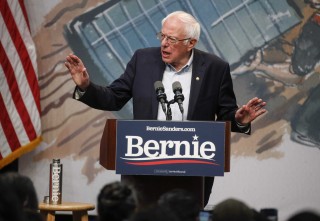One of the oddities of the ongoing Democratic debate about how the United States can get to universal health coverage—an achievement every other nation has somehow managed to pull off—is that no one ever asks the presidential candidates about their fallback positions. But if American history has any lessons to offer, it's that major social and economic reforms always get enacted piecemeal, over time. And so when questioning the current crop of presidential aspirants as to the plans they'll put forward, we also need to know their criteria for accepting or rejecting the halfway-house health coverage policies likely to emerge from Congress.
Social Security, for instance, was first enacted in 1935, but in order to get it through Congress, FDR had to accept the limitations that Southern senators and congressmen (all white) put on it. Same story with the federal minimum wage, first enacted in 1938, which pointedly excluded agricultural and domestic (and for a time, even retail) workers from the list of beneficiaries.
Read Full Article »



